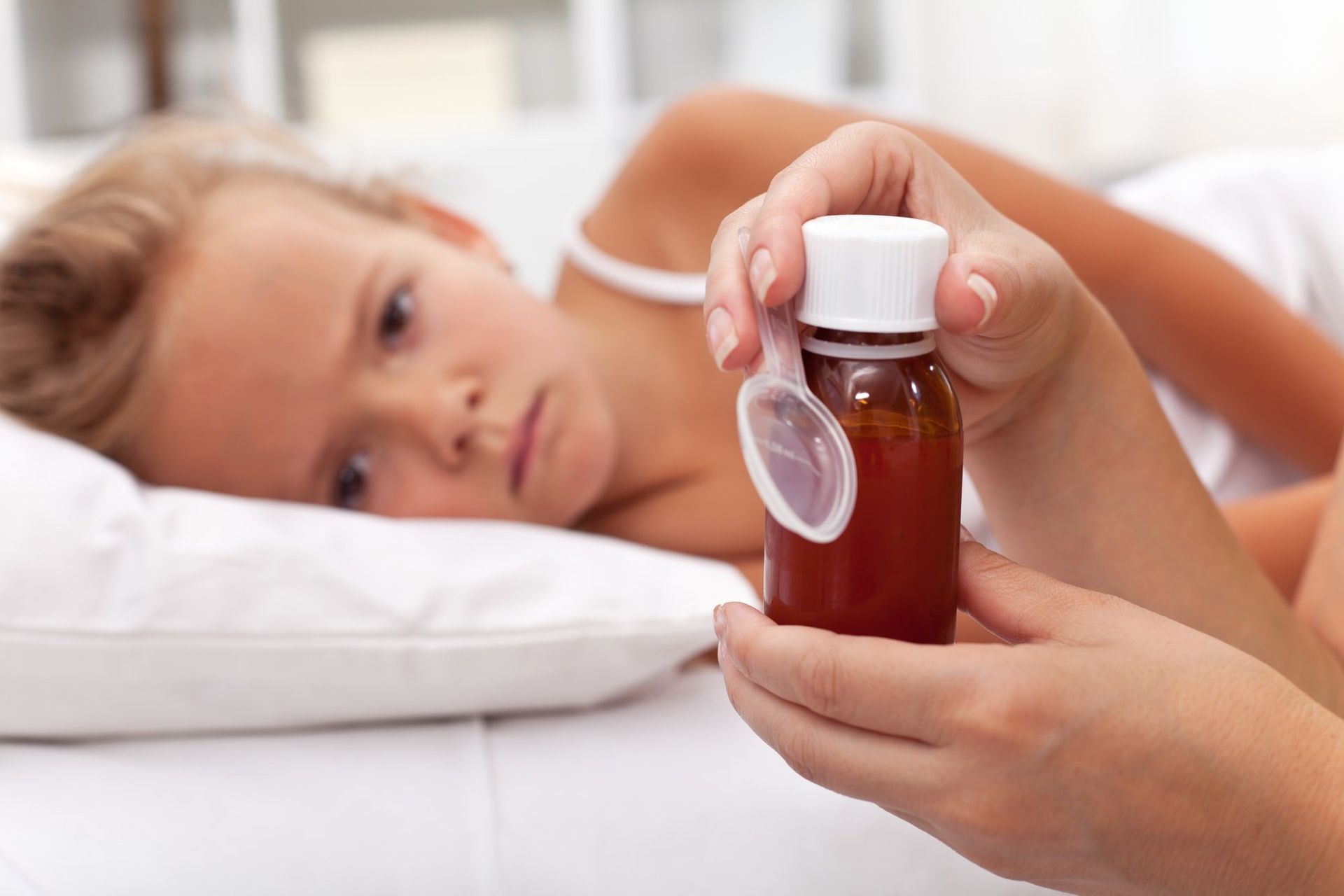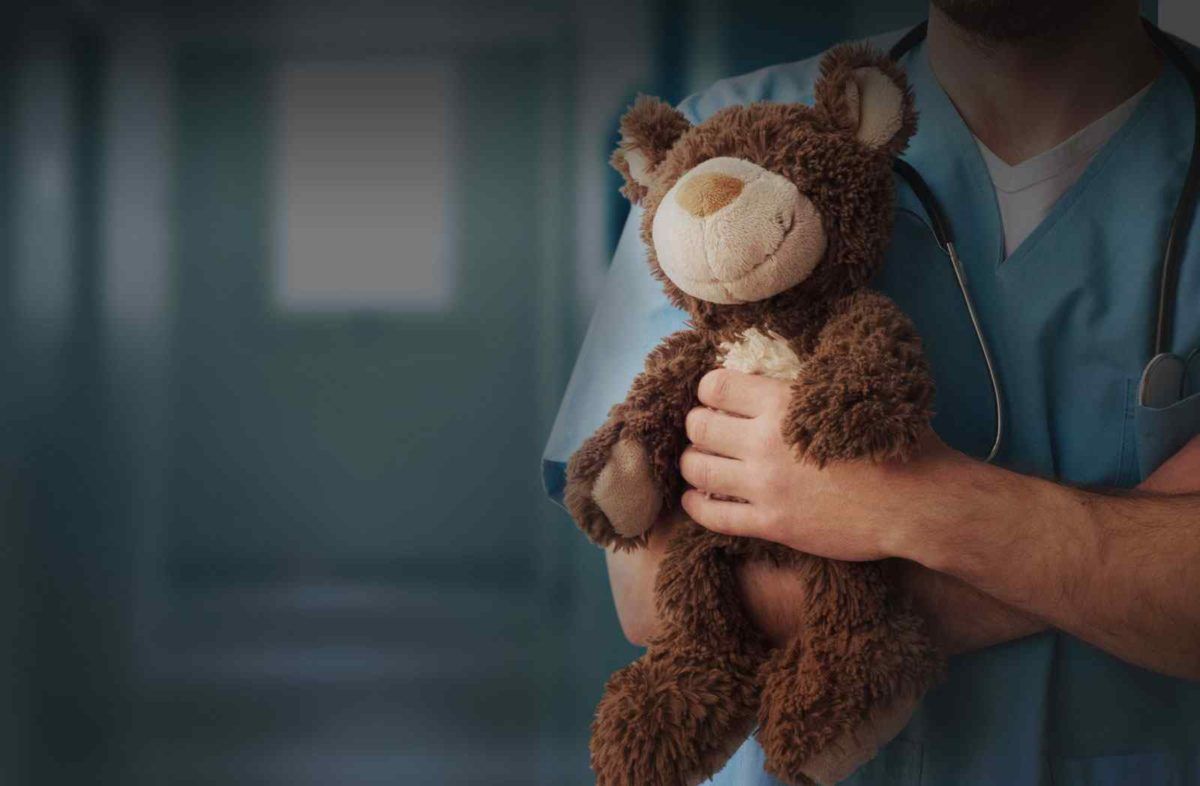Diarrhea and Your Child
When a child’s bowel pattern changes suddenly to a loose and watery bowel movement (BM, stool, or poop) and occurs more often than usual, he or she has diarrhea.
Diarrhea is a common symptom of illness in young children. In the United States, children younger than 4 may have diarrhea 1 or 2 times each year. Diarrhea can be acute (lasts a short time) or chronic (lasting more than 2 weeks).
What causes diarrhea?
Most diarrhea in children is caused by viruses. Diarrhea can also be caused by bacteria, parasites, changes in diet (such as drinking too much fruit juice), problems with the intestines (such as allergy to foods), and the use of some medicines.
When to call the doctor
Children with viral diarrhea have a fever and may vomit. Soon after these symptoms appear, children get diarrhea. Often children with viral diarrhea “feel bad” but do not act ill.
The most important part of treating diarrhea is to prevent your child from becoming dehydrated. Call your child’s doctor right away if your child has any of the following symptoms:
Mild to moderate dehydration
- Plays less than usual.
- Urinates less often (for infants, less than 6 wet diapers per day).
- Has a dry mouth.
- Becomes very thirsty.
- Produces fewer tears when crying.
- Is an infant or toddler with a sunken soft spot on the head.
- Stools will be loose if dehydration is caused by diarrhea. If dehydration is due to fluid loss (vomiting, lack of fluid intake), a child’s usual bowel movements will decrease.
Severe dehydration
- See signs and symptoms of mild to moderate dehydration.
- Very fussy.
- Very sleepy.
- Sunken eyes.
- Cool, discolored hands and feet.
- Wrinkled skin.
- Urinates only 1 to 2 times per day.
Also, call your child’s doctor if your child has diarrhea and
- Fever that lasts longer than 24 to 48 hours
- Bloody stools
- Vomiting that lasts more than 12 to 24 hours
- Vomit that looks green, tinged with blood, or like coffee grounds
- Abdomen (stomach, belly) that looks swollen
- Will not eat or drink
- Severe abdominal (stomach, belly) pain
- Rash or jaundice (yellow color of skin and eyes)
How long will the diarrhea last?
Most of the time mild diarrhea lasts from 3 to 6 days. Sometimes a child will have loose stools for several days longer. As long as the child acts well and is drinking and eating enough, parents do not need to worry about loose stools.
How is diarrhea managed?
- Mild diarrhea without vomiting. Diarrhea often goes away in a couple of days on its own. Most children with mild diarrhea do not need to change their diet and electrolyte solutions are usually not needed. You can keep giving human (breast) milk, formula, or cow’s milk. However, if your child seems bloated or gassy after drinking formula or cow’s milk, ask your child’s doctor if these should be avoided.
- Mild diarrhea with vomiting. Children who have diarrhea and are vomiting will need to stop their usual diets. Electrolyte solutions should be given in small amounts, often until the vomiting stops. In most cases, they’re needed for only 1 to 2 days. Once the vomiting has lessened, slowly return to your child’s usual diet. Some children are not able to tolerate cow’s milk when they have diarrhea and it may briefly be removed from the diet by your child’s doctor. Breastfeeding should continue.
- Severe diarrhea. Call your child’s doctor for severe diarrhea. Children who have a watery bowel movement every 1 to 2 hours, or more often, and signs of dehydration may need to stop eating any solid foods for at least 24 hours. They need to avoid liquids that are high in sugar, high in salt, or very low in salt (ie, water and tea). For severe dehydration, children may need to be given fluids through the vein (IV) in the emergency department.
What are electrolyte solutions?
Electrolyte solutions are very helpful for the home management of mild to moderately severe diarrhea. They are special fluids that have been designed to replace water and salts lost during diarrhea. Soft drinks (soda, pop), soups, juices, sports drinks, and boiled skim milk have the wrong amounts of sugar and salt and may make your child sicker.
Do not try to prepare your own electrolyte solutions at home. Use only commercially available fluids—store brand and name brand work the same. Your child’s doctor or pharmacist can tell you what products are available.
Common questions
Q. Should a child with diarrhea fast (not eat)?
A. A child with diarrhea needs to fast only if she is vomiting. If she is vomiting, offer small amounts of electrolyte solution often. Once she is rehydrated, let the child eat as much or as little of her usual diet.
Q. What about the BRAT diet?
A. The bananas, rice, applesauce, toast (BRAT) diet, once recommended while recovering from diarrhea, is no longer considered useful. Because BRAT diet foods are low in fiber, protein, and fat, the diet lacks enough nutrition to help a child’s gastrointestinal tract recover. Some pediatricians believe that it may actually make symptoms last longer. The AAP now recommends that children resume eating a normal, well-balanced diet appropriate for their age within 24 hours of getting sick. That diet should include a mix of fruits, vegetables, meat, yogurt, and complex carbohydrates.
Q. What about anti-diarrheal medicines?
A. Over-the-counter anti-diarrheal medicines are not recommended for children younger than 2. They can also be harmful in older children. Always check with your child’s doctor before giving your child any medicine for diarrhea.
Also, do not give your child homemade remedies. Because diarrhea is so common, many different home remedies have been tried through the years. Some of these homemade remedies may not be effective and some may actually make things worse.
Q. Do probiotics help diarrhea?
A. Probiotics are types of “good” bacteria that live in the intestines. They may have beneficial health effects, although more studies are needed. Some studies have shown that foods or infant formula containing probiotics can prevent or even treat diarrhea in children, whether this condition is chronic or acute, or associated with the use of antibiotics. To date, the strongest evidence suggests that probiotics may help prevent or improve viral gastroenteritis; they may also strengthen a child’s disease-fighting immune system and thus help fight off a number of infections that could lead to diarrhea.


